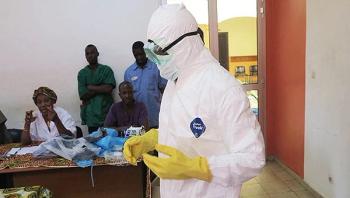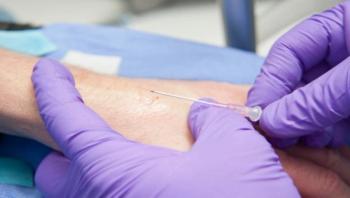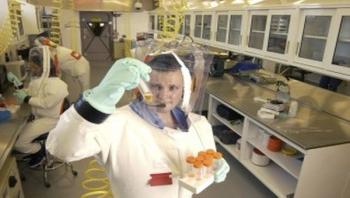
News






Dr. Felix Sarria Baez was one of hundreds of Cuban doctors sent as a Foreign Medical Team to support the Ebola response in West Africa in October 2014. While working there, he contracted Ebola himself. He survived and returned to Sierra Leone to further help Ebola patients. This is his story.






It may come as a bit of a surprise to learn that bacteria have an immune system - in their case to fight off invasive viruses called phages. And like any immune system -- from single-celled to human -- the first challenge of the bacterial immune system is to detect the difference between "foreign" and "self." This is far from simple, as viruses, bacteria and all other living things are made of DNA and proteins. A group of researchers at the Weizmann Institute of Science and Tel Aviv University has now revealed exactly how bacteria do this. Their results were published online today in Nature.



Dr. Cota Vallenas talks about her experiences in the early days of the Ebola outbreak as an expert in infection prevention and control. She reminds us that healthcare workers are among the most vulnerable and a cultural change is needed around self-protection to ensure these frontline workers don’t become infected.






It is estimated that U.S. healthcare institutions spend $9.8 billion annually treating healthcare-associated infections (HAIs). Ventilator-associated pneumonia (VAP), central line-associated bloodstream infections (CLABSIs) and catheter-associated urinary tract infections (CAUTIs) rank among the top five most expensive HAIs (Zimlichman, 2013).

Healthcare-associated infections (HAIs) are a major health concern, despite being largely preventable. Standard precautions are the minimum infection prevention practices that apply to all patient care, regardless of suspected or confirmed infection status of the patient, in any setting where healthcare is delivered. These basic but effective practices are designed to both protect healthcare workers (HCW) and prevent HCWs from spreading infections among patients.


Rapidly diagnosing infectious disease is critical to limiting its spread and containing an outbreak; as the world has witnessed over the past year with the spread of Ebolavirus disease. Scientists at Texas Biomedical Research Institute in San Antonio are receiving funding from the National Institutes of Health in the form of a $2.36 million R01 grant over the next five years to focus efforts on exploring and developing a novel mechanism of Filovirus detection – using llama antibodies.




